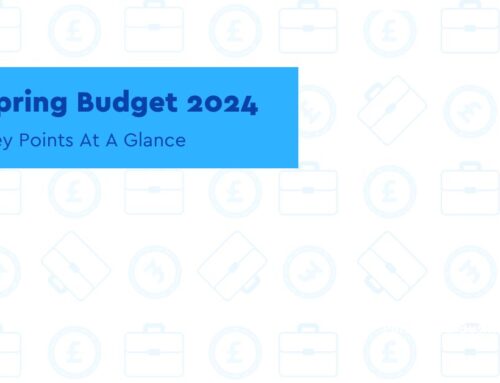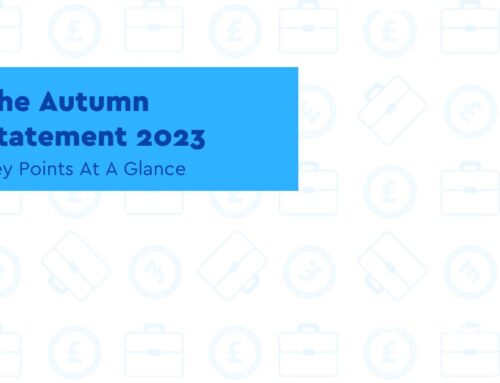IFS: Chancellor may lower spending plans in the Autumn Budget
Key Points
- Borrowing for this year is predicted to be £50bn lower than was forecast in the March Budget
- Given recent announcements of tax rises such as NICs, public spending will settle at 42% of national income
Chancellor Rishi Sunak will have “little room for manoeuvre” in this month’s Budget and Spending Review to achieve his stated objective of a balanced budget, according to the Institute for Fiscal Studies.
To meet his fiscal goals laid out before the pandemic, Sunak will have to give some parts of the public sector less money than he had planned for before the pandemic, despite greater pressure for spending.
To keep the currently planned total in place, the Chancellor may even implement cuts to some budgets over the next two years, the independent think tank added.
Borrowing for this year is predicted to be £50 billion lower than was forecast in the March Budget, which the Chancellor is unlikely to bite into after a speech against “reckless” borrowing he made earlier this month.
Given recent announcements of tax rises, including a hike in National Insurance contributions, public spending will settle at 42% of national income, 2% above its pre-pandemic level and its highest level in ‘normal times’ since 1985.
Paul Johnson, IFS director, said:
“The combined effects of ever-growing spending on the NHS and an economy smaller than projected pre-pandemic mean that he (Sunak) is still likely to be short of money to spend on many other public services.
“On central forecasts, there will be little or no scope to increase spending on things like local government, the justice system and further education, after a decade of sharp cuts.”
“That said, he still faces huge uncertainty over the direction of the economy and hence over the state of the public finances. He will be hoping against hope that stronger-than-expected growth in revenues over the next few years will help to dig him out of what still looks like a fair-sized hole.”
The IFS also found that if the economy does better than expected, it may even turn out that the £28 billion package of tax rises announced in the March 2021 Budget will prove unnecessary for getting the public finances back to current budget surplus from 2023–24 onwards. If that happens, it could be that the Chancellor either abandons some of his proposed tax increases or reduces other taxes. But if things go badly, those tax rises could need to be almost tripled for a current budget surplus by 2025–26.
This article was sourced from Practice Web and IFS.org
Sunak under pressure after ‘delay’ in business rates system overhaul
Key Points
- Business rates are a property tax linked to the underlying value of commercial premises
- Present rates are based on property values from 2015
- Rishi Sunak is now expected to announce only minor changes
The Treasury is facing a backlash from businesses amid a delay to an overhaul of the outdated business rates system that is blamed for mass shop closures.
Businesses had hoped that the government’s response to a “fundamental review” of business rates would be announced with the budget on October 27, but Rishi Sunak is now expected to announce only minor changes, a delay first reported by The Daily Telegraph.
Business rates are a property tax linked to the underlying value of commercial premises. Present rates are based on property values from 2015, which do not reflect a sharp decline in the value of high street shops and shopping centres after the rise of online shopping and the impact of Covid-19. The tax bears no relation to the trading performance of a shop and penalises bricks-and-mortar outlets over online retailers.
Business groups with nine million employees say that delaying reform will risk further shop closures and undermines the potential to invest in priorities such as cutting carbon emissions.
Rain Newton-Smith, the CBI’s chief economist, said: “With up to half of business investment potentially subject to business rates, it has literally become a tax on investment. If the government is serious about achieving its net-zero ambitions, kicking reforms further into the long grass cannot be the answer.”
The British Retail Consortium said that without reform, 80 per cent of bricks-and-mortar shops could close.
A Treasury spokeswoman said: “We’re currently conducting a review of business rates, which will conclude in the autumn.” She pointed to a £16 billion support package for retail, leisure and hospitality businesses during the pandemic. The scheme offered a 15-month waiver of business rates to eligible businesses and included a further 66 per cent discount until March 2022.
She said that the government was “committed to supporting investment through the tax system”, citing the chancellor’s “super-deduction” tax break for plant and machinery.
Ian Fletcher, director of policy at the British Property Federation, said that there would be “significant disappointment” if the government did not “set out its stall” on business rates reform.
Business rates, after reliefs, raise about £25 billion in England for the Treasury each year. The government promised a review in 2019. In the same year, Sunak was involved in a Treasury committee inquiry into the system.
This article was sourced from Business Matters: https://bmmagazine.co.uk/news/sunak-under-pressure-after-delay-in-business-rates-system-overhaul/
Govt urged to consider flat pensions tax relief rate as high earners leave £2.5bn unclaimed
Key Points
- It was found that around £2.5bn of tax relief for higher earners was going unclaimed
- Additional rate taxpayers overlooked a total of £164.7m in the same three year period
The government has been urged to “level the pensions playing field” by scrapping differential rates of pensions tax relief, after PensionBee found that around £2.5bn of tax relief for higher earners was going unclaimed.
The figures, obtained via a freedom of information request to HMRC, showed that over 1.5 million of the UK’s highest earners failed to claim an estimated £810m in tax relief in the 2018/19 financial year, totalling around £2.3bn between 2016/17 and 2018/19.
Additional rate taxpayers, meanwhile, overlooked a total of £164.7m in the same three year period.
The research showed that an average of 80 per cent of higher rate taxpayers eligible to claim relief through their self-assessment tax returns failed to do so over the three-year period, alongside an estimated 53 per cent of additional rate taxpayers.
The number of taxpayers failing to claim beyond the basic rate of tax relief remained consistent at around 1 million between 2016/17 and 2018/19 for higher-rate taxpayers, according to the figures.
In 2018/19 alone, this equated to an estimated £756.2m in unclaimed tax relief on personal pensions amongst higher rate taxpayers, although this is slightly down from the £769.4m in 2017/18.
The number of additional rate taxpayers failing to claim has also fallen from its three year peak of 72,262 in 2017/18 to 58,690 in 2018/19, although an estimated £54.6m is still going unclaimed in 2018/19, compared to £60.5m in 2017/18.
In light of the findings, PensionBee explained that eligible higher and additional rate taxpayers would need to complete a self-assessment, despite being employed and usually handling their tax matters exclusively via payroll.
It also called on the government to take action by scrapping the differential rates of tax relief to ensure a “level playing field”, recommending a 25 per cent universal rate instead.
PensionBee CEO, Romi Savova, commented: “Tax relief is a vital incentive that encourages people to save efficiently towards their retirement and too many people continue to miss out on this crucial benefit.
“Research shows that consumers on lower incomes, and particularly women, do not receive any of the tax benefits that come with pension saving, because they are currently under the basic rate threshold.
“While at the other end of the spectrum, today’s analysis shows that millions of high earners are also missing out by not completing their self-assessment.
“The dual system is too complex and radical reform is long overdue. We’re calling on the Chancellor to scrap differential rates of tax relief, which are incredibly costly and complicated to understand, in favour of a system that truly rewards everyone for putting money away for their retirement.”
However, analysis from the Pensions and Lifetime Savings Association previously suggested that tax relief changes would “create few winners”, with industry experts warning against a ‘budget raid’ after the cost of pensions tax relief was revealed earlier this year.
Industry experts have also previously warned that a 25 per cent flat rate pension tax relief would only generate around £0.6bn in savings for the government, amid speculation the government may look to the pensions sector to fund a post-pandemic recovery.
This article was sourced from Pensions Age: https://www.pensionsage.com/pa/Govt-urged-to-consider-to-universal-tax-relief-as-millions-of-high-earners-miss-out.php
Covid support and grants: final actions
Key Points
- If CJRS claims for September need to be amended, you must do so by Thursday, October 28
- All SEISS grants received before April 6, 2021 are taxable in the 2020-21 tax year, regardless of the recipient’s accounting period
The Coronavirus Job Retention Scheme
The CJRS closed on September 30 and the final deadline for claims was October 14.
What you need to do now:
If claims for September need to be amended, you must do so by Thursday, October 28.
- Keep records for six years supporting the grants claimed, in case HMRC need to check them
- Include grants as income on your company tax return, partnership tax return or the self-employment of your individual tax return for the tax year of your receipt, depending on your business type
HMRC may accept a claim made after the deadline if:
- You have a reasonable excuse for failing to make the claim in time – despite taking care to do so, and submitted the claim as soon as you were able to
Frequently asked questions about the CJRS
What if I have claimed too much in error?
If you have claimed too much in CJRS grants and have not already repaid the over claimed amount, you can let HMRC know and make a repayment online by card or bank transfer – go to ‘pay Coronavirus Job Retention Scheme grants back’ on GOV.UK.
Your must tell HMRC and repay the money by the latest of whichever date below applies:
- 90 days from receiving the CJRS money you’re not entitled to
- 90 days from the point circumstances changed so that you were no longer entitled to keep the CJRS grant
If you don’t, you may have to pay interest and a penalty as well as repaying the excess CJRS grant.
What if I haven’t claimed enough?
If you made a mistake in your last claim for September that means you received too little money, you’ll need to amend it by Thursday, October 28. To find out how, search ‘Get help with the Coronavirus Job Retention Scheme’ on GOV.UK.
SEISS
As Self-Employment Income Support Scheme (SEISS) grants are taxable, if you claimed, you should declare these on your tax return.
Advice for partnerships
If you are a partner and claimed under the SEISS, how your grants are treated for tax purposes depends on who received the grants.
- For most partners, HMRC paid the SEISS grant directly into their individual bank account, meaning it is not recorded as partnership income in the partnership accounts. If you received SEISS grants in this way, you should report the grant as an addition to your partnership income on the partnership supplementary pages. Grants paid on or before April 5, 2021 should be included on the 2020-21 return, using box 9.1 on the partnership supplementary pages (SA104S or SA104F). SEISS grants should not be included on the partnership tax return (SA800).
- If the grant was paid to the partnership and treated as partnership income, included in the partnership accounts and distributed to all partners in line with the partnership agreement, you should include the grant amount within the turnover boxes on the partnership tax return (SA800). SEISS grants should not be included on the individual’s partnership supplementary pages (SA104S or SA104F) as they would already be reflected in the amount of income received from the partnership.
All SEISS grants received before April 6, 2021 are taxable in the 2020-21 tax year, regardless of the recipient’s accounting period. This is because SEISS grants are intended to provide broadly real time support for businesses during the pandemic. For most individuals, the first, second and third SEISS grants were paid on or before April 5, 2021.
Final claims for the Statutory Sick Pay Rebate Scheme
The SSP Rebate Scheme closed on September 30 and eligible employers have until December 31 to submit any final claims, or to amend claims you have already submitted.
As a reminder, if you are an employer with fewer than 250 employees and have paid SSP to employees for sickness absence or self-isolation that was coronavirus-related on or before September 30, you could be eligible for support.
The repayment can cover up to two weeks of the applicable rate of SSP. For more information on eligibility and how to make final claims, search ‘check if you can claim back Statutory Sick Pay’ on GOV.UK.
This article was sourced from HMRC help and support
Weekly HMRC, Gov’t and tax updates
New government helpline launched for businesses exporting to the EU
The DIT has launched a new Export Support Scheme (ESS). This new helpline and practical government support for UK exports to the EU is a real step forward, and in line with CBI calls to support firms with their exporting journey. This will be particularly beneficial to SMEs who are currently grappling with the new UK/EU trading environment and often don’t have the resources to find the information they need.
The new service will include a helpline but also with the option of submitting enquiries digitally. Questions will be routed to relevant government officials where necessary.
This single point of contact will be a real benefit to businesses navigating Whitehall. Businesses can access the Export Support Service by visiting www.gov.uk/ask-export-support-team or calling 0300 303 8955.
Recent data shows supporting a new generation of SME exporters could boost UK export revenues by an additional £20bn by 2030. And at an individual company level, exporting can have a huge impact on growth, productivity, and risk diversification.
7 in 10 people not doing anything to reduce potential IHT bill
Seven in ten people face paying a bigger inheritance tax (IHT) bill than they might need to, a survey suggests, despite the fact that four in ten are concerned about paying the tax.
The research, co-sponsored by Canada Life and AKG, revealed that three-quarters of individuals had taken no steps to reduce their IHT liability, while only a fifth have taken action.
IHT is applied on a deceased individual’s estate above the threshold of £325,000 at 40%, although many people use various methods to decrease their IHT bill.
For instance, subject to IHT rules, individuals can avoid a charge on assets if they give them to family members as a gift, or if they put part of their estate into a trust.
Sunak considers VAT cut on household energy bills
Chancellor Rishi Sunak is reportedly considering a cut to the current 5% VAT rate on household energy bills in response to a looming cost of living crisis, reports suggest.
Government officials briefed on this month’s Autumn Budget said Sunak had looked at reducing household energy VAT, but that no decisions had been taken according to the Financial Times.
The Treasury declined to comment on the issue, serving only to increase speculation.
As EU rules stipulated that member states could not cut VAT on domestic energy below 5%, the move would allow the Government to deliver a so-called ‘Brexit dividend’.
Sunak will be conflicted with making tax cuts right now, however, as he readies himself for an Autumn Budget that is likely to be dedicated to reducing the Government’s spending deficit.
A move on VAT would also come into conflict with the upcoming UN climate change conference due to take place in Glasgow at the end of October 2021.
The Chancellor will announce his Autumn Budget on October 27, 2021.
UK house prices up 10.6% in the year to August
Average house prices in the UK increased by 10.6% over the year to August, up from 8.5% in the year to July 2021, according to data from the Office for National Statistics (ONS).
The average UK house price was £264,000 in August 2021, £25,000 higher than this time last year, and the second highest on record after an average price of £266,000 in June.
The increase in prices may have been due to the temporary stamp duty land tax (SDLT) holiday, the ONS suggested, as the tax break could have allowed higher prices as buyers’ overall costs were reduced.
Another recent ONS study found that house prices in coastal and rural areas, such as North Devon, Hastings and Richmondshire, are increasing at the greatest rate.
Get In Touch
At Morgan Reach, we understand every business needs a little help now and again-especially when it comes to the financial side of things. Therefore, to help our clients and visitors we endeavour to cover as much of the business news as possible. If you are self-employed or run a business and need assistance and advice on how these news could make a difference to you or your business, feel free to get in touch with the experts at Morgan Reach. Our business growth experts at Morgan Reach will guide you through what support is available for you or your business as well as the latest news that may affect you.







